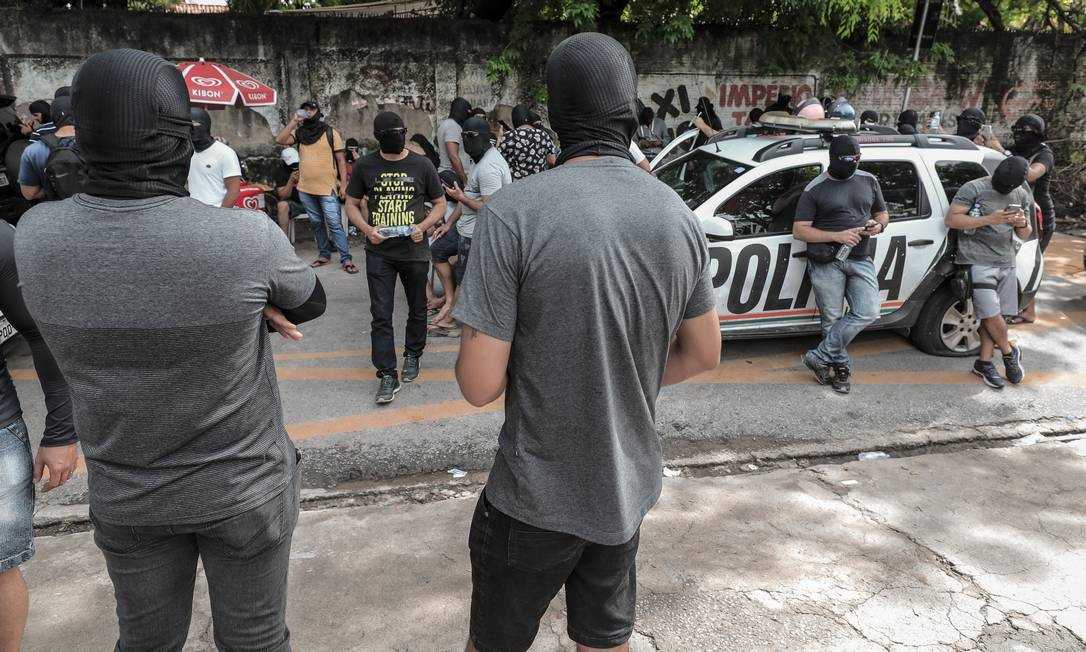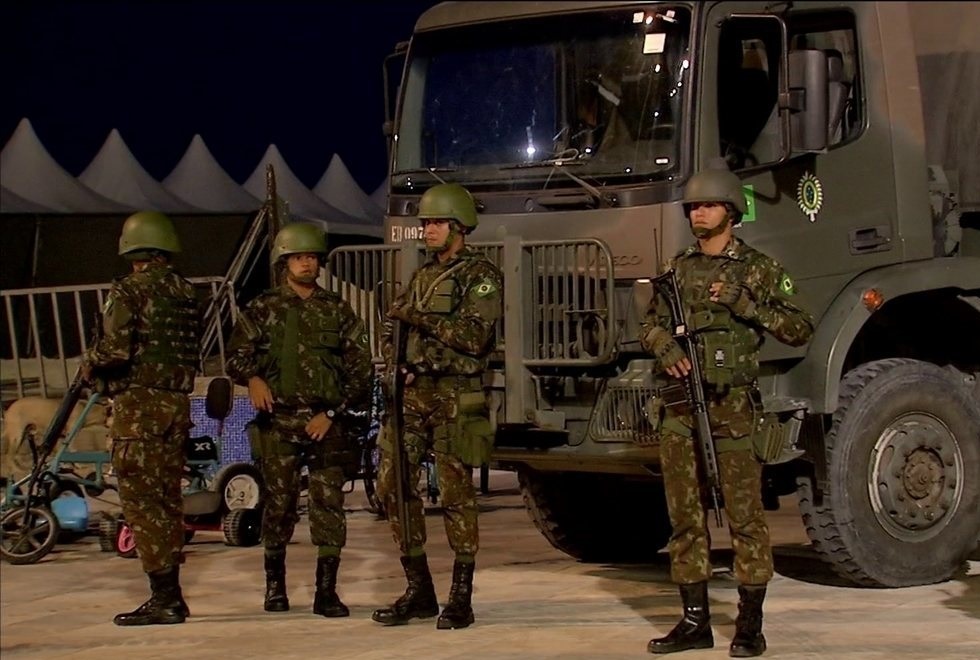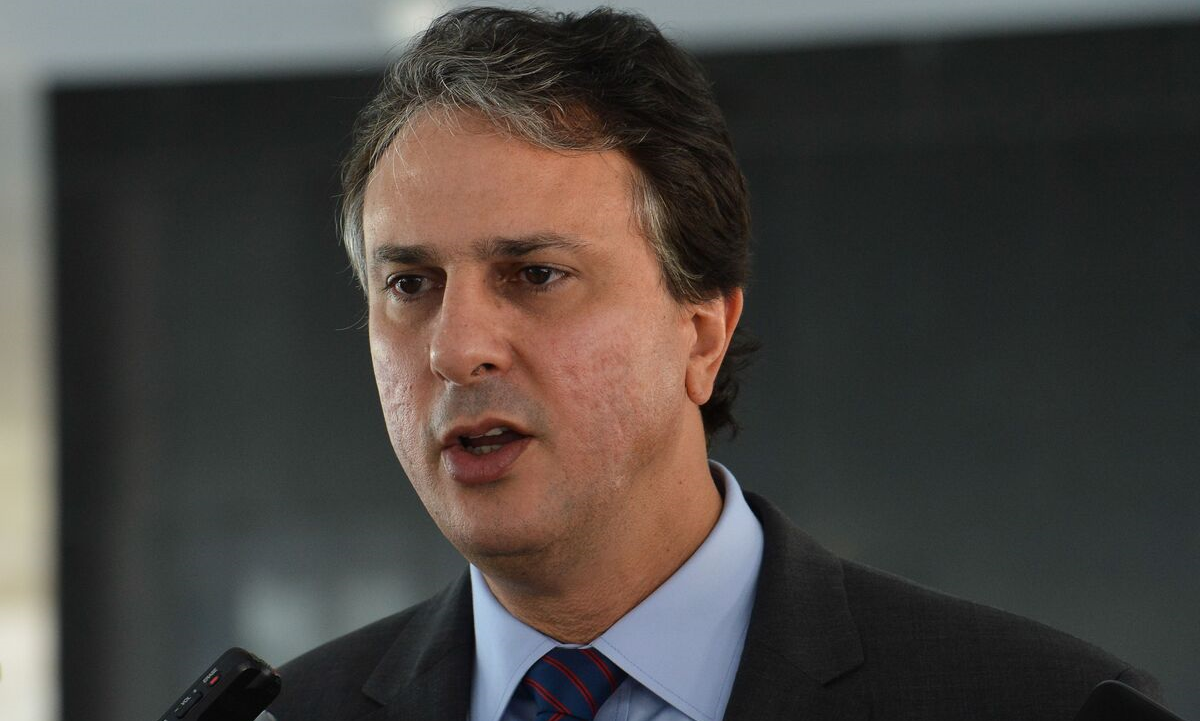RIO DE JANEIRO, BRAZIL – After 13 days of rioting, Ceará’s State Police (PM) agreed to yield despite failing to secure amnesty, an instrument that would prevent them from being held accountable for transgressions during the illegal strike.
The class was disgruntled by the lack of inclusion of this point in the proposal closed by the special commission and, as a result, the negotiation on Sunday lasted more than seven hours.

But the group felt pressured by the difficulty in gaining popular support and by the signals from Governor Camilo Santana, who tried to hurriedly approve a Proposal for an Amendment to the state Constitution to ban amnesty. The vote in the Chamber was ultimately deferred until Tuesday after Deputy André Fernandes, who is in favor of the strike, called for a review.
The governor had already said that this point -which became the most sensitive of the security crisis since the incident that resulted in Senator Cid Gomes being shot– was non-negotiable. Nevertheless, during the day, police officers and relatives who continued to block the Fortaleza headquarters, said they would only leave the premises with the amnesty guaranteed.
The atmosphere among the police officers was one of tension. They were split because part of them feared reprisals for taking part in the illegal strike. Some also complained about colleagues who were following the negotiations from home rather than from their headquarters, which would have drawn power from the movement.
“If they had been here, we would have been able to remain much longer,” said one of the strikers. The adhesion to the strike had been decreasing since Governor Camilo Santana began to initiate procedures to punish the strikers. More than 200 police officers were removed from their duties. And another 43 were arrested for failing to report to work during the Carnival operation. They remained in custody by a court ruling last Friday, which converted the arrest into a pre-trial detention.
On Sunday night, leaders representing the strikers asked for a “vote of confidence”, as officials had promised to review the administrative procedures on a case-by-case basis, and the penalties should be more lenient.
The final agreement provides for the right of police officers to defend themselves in a legal proceeding without persecution. The broad defense and right to adversarial proceedings would be guaranteed by monitoring institutions with no ties to the State, such as the Public Defender’s Office, the Army, and the OAB.
The stalemate over the police dissatisfaction with their wages and work schedules started late last year. The governor pledged to comply with some of their demands, and a number of police associations accepted an agreement, but part of the base rejected it and mutinied.
This Sunday’s agreement does not allocate further state resources to the payment of officers, but considers that there may be reallocations in the R$495 million (US$124 million) already budgeted. Since the start of the strike, a climate of insecurity has taken over the state. More than 200 homicides have been reported and soldiers from the Brazilian Army have been deployed to assist security in the state.
The PM strike in Ceará has attracted attention throughout the country for fear that the local crisis would have a violent domino effect on the rest of the country, in a context in which other states have already received demands from these workers, who carry firearms and are prohibited by law from going on strike. The security crisis in Ceará has also revealed some chess moves by local and national politicians.

President Jair Bolsonaro‘s statements that the Army’s presence would not be permanent in the state and that it would be up to Governor Camilo Santana to solve the crisis were perceived by strikers heard by EL PAÍS as a message of support for the movement. Behind the scenes, representatives of the Supreme Court and Congress took action to secure the national forces.
Earlier, governors from other states had already offered to send police officers should the President fail to renew the Guarantee of Law and Order, a provision that allows the Army’s assistance in public safety. Minister Sérgio Moro celebrated the end of the strike on Twitter. “Common sense prevailed, without radicalism,” he said.
“I welcome the news about the end of the strike of police officers in Ceará. The Federal Government was present, from the beginning, and did everything possible within the legal limits and respect for the autonomy of the State. Common sense prevailed, without radicalism. Congratulations to all.”
– Sérgio Moro (@SF_Moro) March 2nd, 2020
The last day of the mutiny at the police headquarters
The decision to end the mutiny came officially from a Fortaleza battalion, which became the HQ of the strike in Ceará since the movement reached the peak of tension in Sobral, when hooded people in cars ordered traders to close their doors on February 19th. Other cities in Ceará – such as Sobral and Caucaia – still maintained state police facilities occupied until Sunday, but the capital’s headquarters played a central role in the attempt to regain public opinion support.
It was from there that the main decisions on the new steps to be followed came, with the worker assemblies broadcast live on social media and intensive communication of strikers with agents from the interior and even from other states by WhatsApp groups. Local politicians who had gained public office from their participation in previous strikes counted likes and tried to use the movement with a view on this year’s elections.
The messaging App was also used the entire time in the logistics of the state police facility occupation, with several groups set up to organize kitchen tasks, cleaning, and even care for the children who accompanied their parents on site.
While the special commission discussed a new proposal to end the strike, the comments within the headquarter were that the police officers would only leave the premises with an amnesty. With an eye on their cell phones, stationed officers said the strike would be extended and they would not leave for fear of arrest or transfer.
“There’s no way it could get any worse for us here. We will only leave with an amnesty”, said one of the strikers, along with three other police officers and two wives, in a public school room occupied by the strikers last Friday. “If the governor doesn’t give in, he can have federal intervention like in Rio de Janeiro, then the matter will be out of his hands,” said another.
A third pondered: “There’s no way of knowing what’s going to happen”. The agreement closed on Sunday night suggests that there will be no transfer of PMs in the six months after the formal signing of the terms, which should happen this Monday morning.

The school is located in the grounds next to the headquarters, and during the four hours that EL PAÍS was present in both areas, the climate was calm. There was no concern that the Army would intervene for the repossession of property on the site, as Governor Camilo Santana had asked earlier. It was soon known that the Armed Forces had replied that this demand was not theirs to meet.
The protesters occupied the school’s five classrooms, kitchen and bathrooms, whose classes had been suspended days earlier by the board due to its proximity to the occupied headquarters.
They argued that they were there with the permission of the staff, although without formal authorization. And they said they wanted to end the strike, but claimed that from the outset of the strike they had been counting on the pardon for transgressions, as has happened in other similar strikes.
“They tried to portray us as criminals. But there was a reason for us to wear the balaclavas. It was only to avoid being identified because we could be punished under the military code,” explained a police officer.
School occupied during police strike in Ceará
“The amnesty will have to come. No one will leave without it,” said an officer who was resting in one of the classrooms. There, the students’ tables and chairs were replaced by inflatable mattresses, the result of donations from businessmen and police associations from other states, as strikers and relatives said. In the early afternoon, a group of about 20 people gathered in one of the classrooms to discuss the progress of negotiations. EL PAÍS was unable to attend the meeting.
In the neighboring building, the headquarters’ auditorium had its area divided for the storage of supplies and also for a kind of toy room for the children, with rubber mats and board games. This was the largest room for the women who occupied the headquarters and tried to shoulder the responsibility for the riot.
In other strikes, the perpetration of practices such as the occupation of headquarters was assigned to them as a strategy for their husbands to avoid being held accountable for these actions. However, the government of Ceará stated that they could also be held accountable for the crimes. For this reason, all the people heard asked to remain anonymous. In the air-conditioned auditorium, they chatted while watching their children play and even had a manicure.
“We raise our children alone. They work nearly every holiday. And the government’s proposal only makes the time off worse. That’s when we decided to come. We started this from here,” said one of the wives.
On this final day of the mutiny, the whole battalion was busy. There was a great flow of people coming and going from the two occupied buildings at all times. It was hot, and most people preferred to stay in the rooms that had been turned into accommodation, which had air-conditioning. Both relatives and the police officers themselves complained constantly about being called “mutineers”.
“It was a word the governor came up with to criminalize us,” justified one of them. Mutiny is a crime under the Military Penal Code for refusing obedience and occupation of headquarters. The sentence is four to eight years imprisonment.
Source: El País

